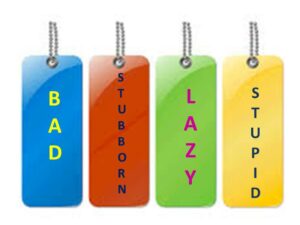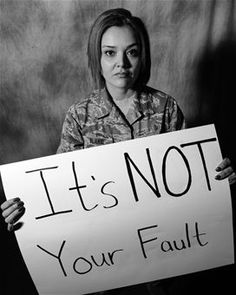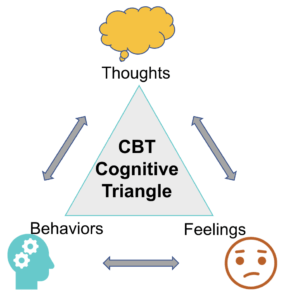We often tend to pathologize others and ourselves, but do not take the time to understand and be sensitive to these people and/or ourselves. Humans are complex beings that should be treated with respect, regardless of whether they have a diagnosed mental disorder or not.
Contents
What Is Pathologizing?
 Pathologizing is the act of labeling something as a mental disorder. This can be done to individuals, groups, or behaviors. There are a number of reasons why people pathologize things. Some people do it because they are looking for an explanation for their problems. Others do it because they want to feel like they are special or different from everyone else. And still, others do it because they believe that it is the only way to get help.
Pathologizing is the act of labeling something as a mental disorder. This can be done to individuals, groups, or behaviors. There are a number of reasons why people pathologize things. Some people do it because they are looking for an explanation for their problems. Others do it because they want to feel like they are special or different from everyone else. And still, others do it because they believe that it is the only way to get help.
The term ‘pathologizing’ is not inherently bad or good, but rather implies value judgments about how one should behave according to typical social expectations. Whether this behavior is encouraged, discouraged, or even pathologized varies depending on cultural norms. An example of this is talking about “female hysteria,” a diagnostic term that was historically used to medicalize behaviors that we now view as normal and healthy but were viewed as deviant and problematic at the time (e.g., feeling overwhelmed, emotional expression).
How We Pathologize Others?
Pathologizing others and ourselves can have harmful consequences on our mental health. It is important for us to be aware of these consequences and to work towards changing the way we perceive others and ourselves. We may pathologize others by-
Labeling Them

One of the ways in which we often pathologize others and ourselves is by labeling them. We may see someone as “crazy” or “stupid” without ever taking the time to understand what is happening for that person. This kind of thinking can lead to further judgment and ostracism, both of which are harmful to a person’s well-being.
Over-medicalizing Everyday Problems
Another way in which we tend to pathologize others and ourselves is by over-medicalizing everyday problems. For example, people have been more likely to seek out a mental health professional when they are feeling sad rather than reaching out to friends or family members for support. In addition, the pharmaceutical industry has been known to over-market their drugs in an effort to convince people that they have a particular disorder. Therefore, it is important for us to question what we perceive as a mental illness and be sure that it actually warrants a medical label.
Expanding The Definition Of Mental Illness
One final way in which we pathologize others and ourselves is by expanding the definition of mental illness. The Diagnostic and Statistical Manual of Mental Disorders (DSM) is a way to categorize many different mental disorders, but the definition of what should be considered a disorder has been changing over time to include more people. For example, it used to be that homosexuality was considered to be a mental illness, but after much contention, it was removed from the DSM in 1973. Therefore, it is important for us to be mindful of the ways in which we pathologize others and ourselves and to work towards change.
How We Become Victim Of Pathologizing?
 It is not your fault if you are a victim of pathologizing it’s just a part of the disorder and the effect it has on you. There are a number of things that can allow an individual to become a victim of over-pathologizing. One of the things that can contribute to pathologizing is being too self-focused. You may have been constantly looking at yourself and your behavior instead of focusing on other people’s reactions towards it. This can be very harmful to individuals who like to overanalyze themselves and their actions.
It is not your fault if you are a victim of pathologizing it’s just a part of the disorder and the effect it has on you. There are a number of things that can allow an individual to become a victim of over-pathologizing. One of the things that can contribute to pathologizing is being too self-focused. You may have been constantly looking at yourself and your behavior instead of focusing on other people’s reactions towards it. This can be very harmful to individuals who like to overanalyze themselves and their actions.
You may also become a victim if you obsess over your limitations and mistakes.
Another reason why it can be easy to become a victim of pathologizing is obsessing over all the negative things about yourself. If you focus on the things that you do wrong or don’t like about yourself, then it’s very easy for someone to take advantage of this vulnerability. The truth is that everyone has their strengths and weaknesses, but the important thing is how you handle them.
Dangers Of Over Pathologizing
There are a number of dangers associated with being a victim of over-pathologizing. One of the biggest dangers is that you may end up believing that there is something wrong with you. This can lead to a lot of self-doubts and low self-esteem. You may also start to feel like you are not good enough or that you are not normal.
Pathology can be a very harmful thing for your mental health. If you are a victim of over-pathologizing, it can be very dangerous for your mental health. It is important to be aware of the dangers of pathology. You should remember that being a victim of over-pathologizing is not your fault.
Benefits Of Not Pathologizing
There are a number of benefits to not pathologizing. One of the biggest benefits is that-

- You will start to feel better about yourself.
- No longer you’ll feel like you have to be different or special.
- You will also start to feel more normal and less abnormal. This can be very liberating and empowering.
Another benefit of not pathologizing is that you will start to see the world in a different light. You will start to see that things are not always black and white. There is a lot of nuance and complexity in the world, and this can be quite eye-opening.
Finally, by not pathologizing, you will start to see the lives of others in a different light. This will help you to be able to relate and connect in a more meaningful way with other people in your life.
How To Stop Pathologizing?
Pathologizing is the act of labeling normal human behaviors and emotions as abnormal or pathological. It can be damaging to both the individual who is pathologized and to their loved ones.
There are a number of things that you can do to stop pathologizing. The most important thing is to become aware of the fact that you are doing it. Once you are aware of what you are doing you can begin to question your thoughts and beliefs. You can also start to look for other explanations for the things that you are pathologizing.
Be More Accepting
You can also try to be more accepting of yourself and others. Acceptance is key to stopping the cycle of pathologizing. You need to accept that you are flawed and that everyone else is too. You also need to accept that your thoughts and feelings are normal and acceptable.
Have A healthy Perspective On Life
It is also important to have a healthy perspective on life. You need to remember that not everything is a crisis and that there is more to life than just your mental health. It is also important to have a good support system. This can include family, friends, and professionals. These people can help you to maintain a healthy perspective on life and your mental health.
Get Professional Help

If you are struggling with the symptoms of a mental illness it may be helpful to get professional help. A therapist can provide you with tools and techniques that will help you in your recovery process. They can also provide support and validation for the things that you are going through in your life.
It is important to remember that everyone experiences symptoms differently and there is no “one size fits all” approach to treatment. You need to find a treatment plan that works for you and that you are comfortable with.
If you are struggling to stop pathologizing it may be helpful to seek professional help. A therapist can provide you with the tools and techniques that you need in order to break the cycle of pathologizing. They can also provide support and validation for the things that you are going through in your life.
Treatment For Over- Pathologizing
There are a number of ways that people who over-pathologize themselves deal with it. One of the first things that they can do is not obsess over themselves as much as they used to. They should instead be focusing on other people’s reactions towards them and their behavior. They can also try to be more accepting of themselves and their limitations.
Lastly, they should try to focus on the good things about themselves and not dwell on the negative aspects for too long. Pathologizing yourself can be a very harmful thing. So it’s important to be aware of the dangers involved. If you are a victim of over-pathologizing, don’t worry it’s not your fault. It’s just a part of the disorder and how it affects you.
CBT
One of the best ways to treat over-pathologizing is by using cognitive behavior therapy. There are many benefits that come with this type of treatment, but the main benefit is that it can be done on one’s own time, at their own pace. It does not require any special training to learn, and anyone can do it. It focuses on teaching people how to better understand themselves by learning about different patterns of thought and emotions they may experience. The goal is to teach them how to better cope with these thoughts and emotions, so they don’t have an intense response to them. One major downside is that cognitive-behavioral therapy may not work for everyone because some people would rather just label themselves as being broken or sick rather than try new things.
DBT
 Another form of treatment that can be helpful for over-pathologizing is called Dialectical Behavior Therapy, or DBT. This type of therapy is designed to help people who have a lot of emotional problems. It helps them learn how to better control their emotions, deal with stress, and improve their relationships. Like cognitive-behavioral therapy, DBT can be done on one’s own time, which is a major plus. However, it does require training to be able to do it properly.
Another form of treatment that can be helpful for over-pathologizing is called Dialectical Behavior Therapy, or DBT. This type of therapy is designed to help people who have a lot of emotional problems. It helps them learn how to better control their emotions, deal with stress, and improve their relationships. Like cognitive-behavioral therapy, DBT can be done on one’s own time, which is a major plus. However, it does require training to be able to do it properly.
Both of these treatments are great options for people who over-pathologize. They can help you learn how to better control your thoughts and emotions, which is exactly what you need to stop over-pathologizing.
Medication
Medication can also be a helpful treatment for over-pathologizing. There are many different types of medications that can be prescribed, and each one is designed to help with particular symptoms. For example, there are medications that can help with anxiety, depression, or mood swings. If you think medication might be a good option for you, it’s important to talk to a medical professional, such as a psychologist or psychiatrist, about the possibility.
ACT
One final treatment method is called acceptance and commitment therapy, or ACT. This type of treatment helps people learn how to embrace things that are outside of their control. It focuses on teaching you how to accept situations for what they are instead of trying to push them away or ignore them. The second part of this therapy is committing yourself to take action and doing something that will contribute to your well-being, even if it means putting in a lot of effort. One major downside with this treatment is that it does involve some work on the individual’s part.
Conclusions
Pathologizing is a dangerous thing for your mental health. It can lead to a lot of self-doubts and low self-esteem, making you feel like you are not good enough or that you are not normal. If you have been a victim of pathologizing it can be very dangerous for your mental health, so make sure to take care of yourself and get help from professionals if needed.
If you are looking for affordable Online Counseling MantraCare can help: Book a trial therapy session



